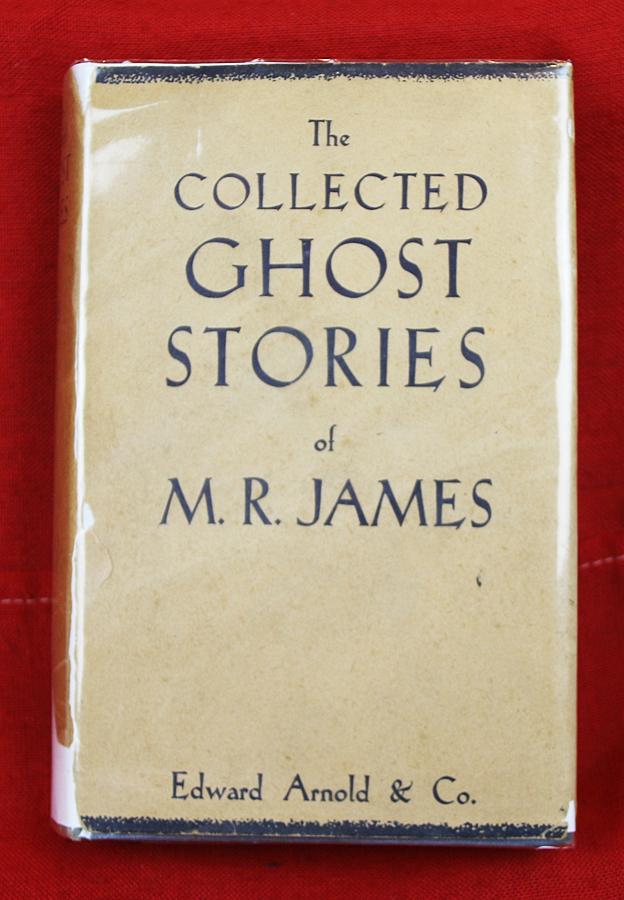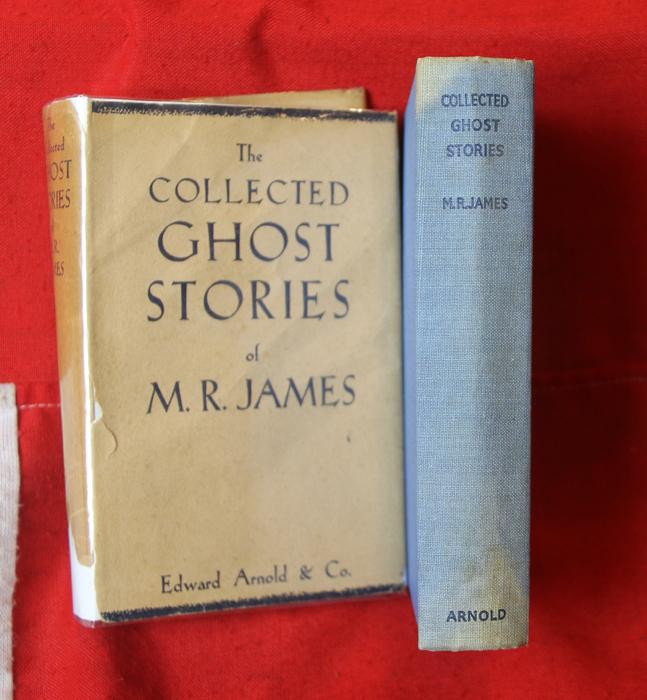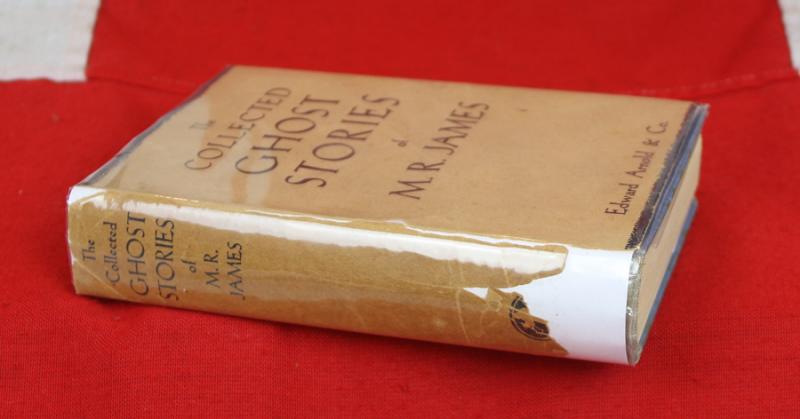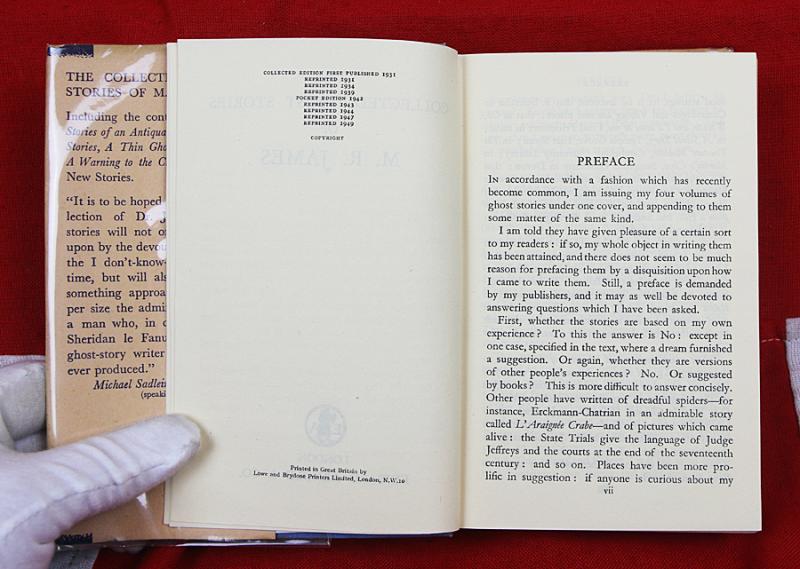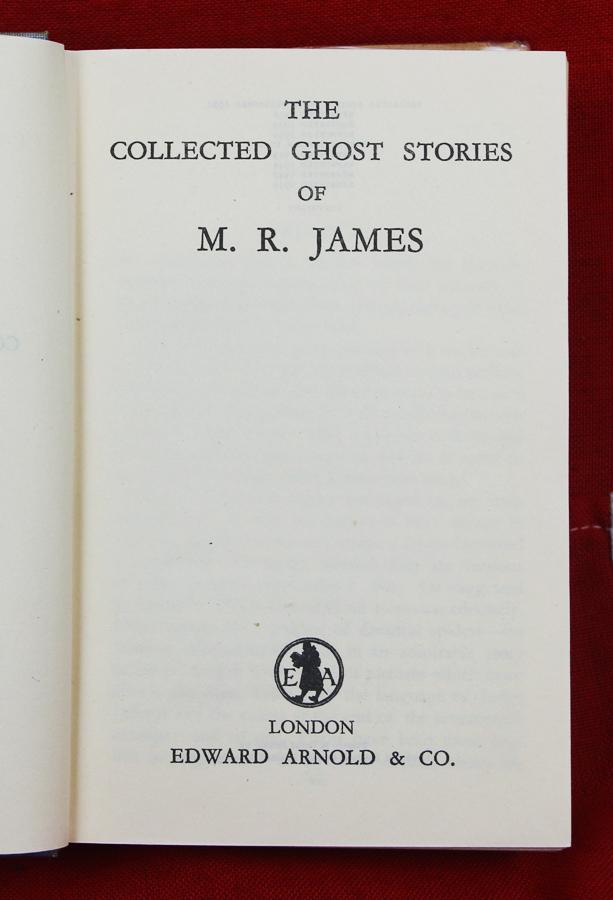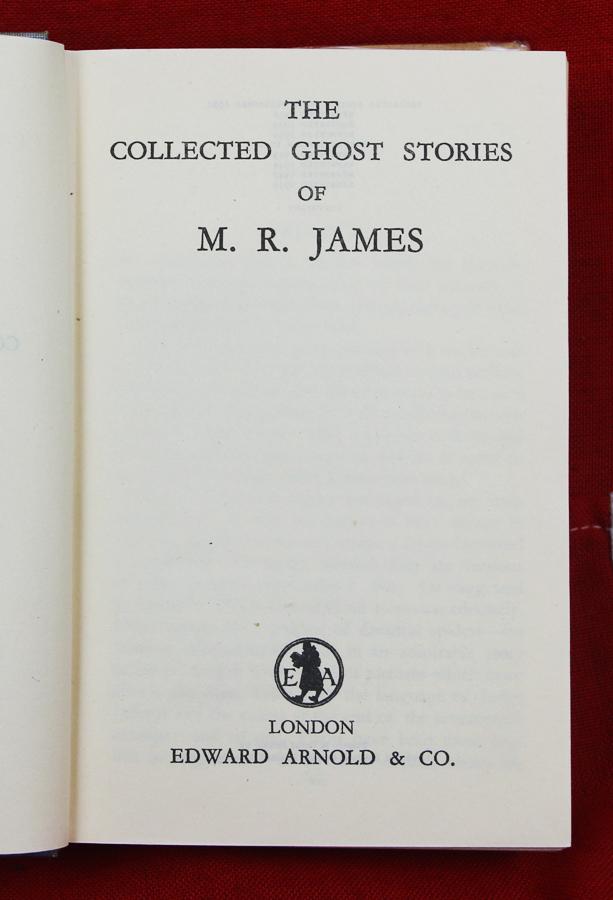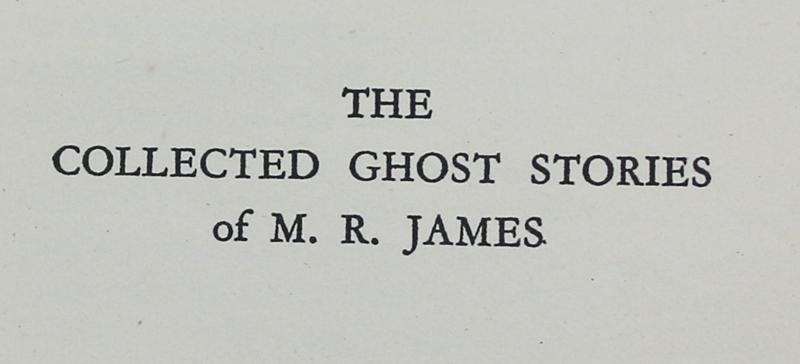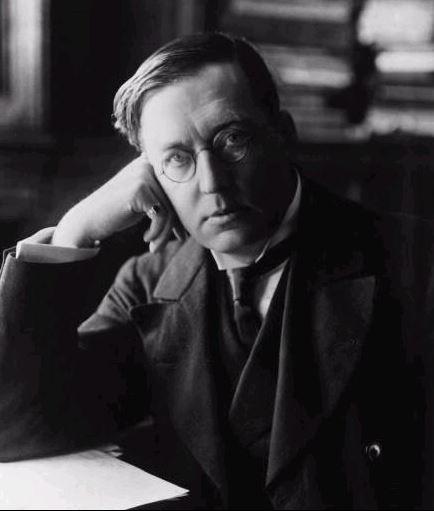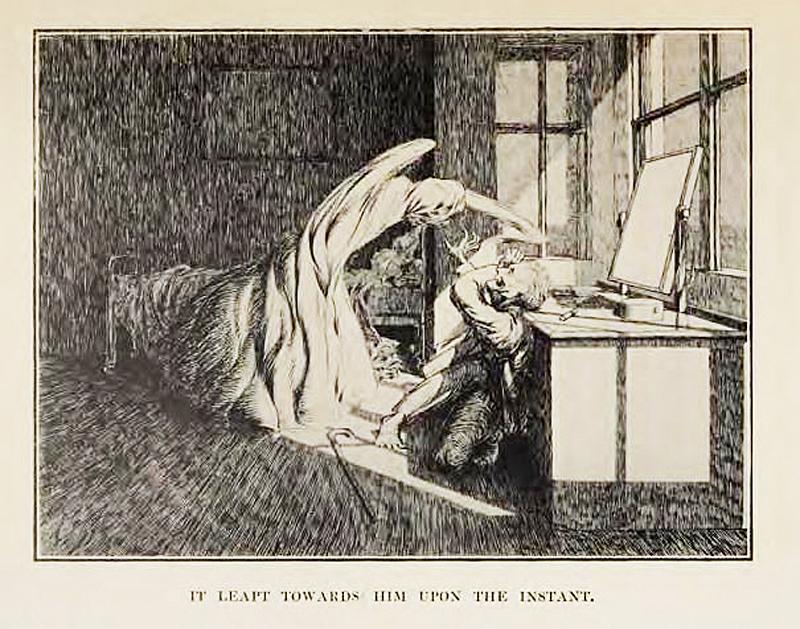A Perfect, Very Special Gift or Personal Choice. The Collected Ghost Stories of M. R. James Published in 1931, Printed in 1949 Edward Arnold & Co London
Every year around this time we try our best to find a super original early post war edition of probably the very finest book of ingenious yet disturbing ghost stories ever written.
This year we have managed once more.
Montague Rhodes James, who used the publication name M.R. James, was a noted British mediaeval scholar & provost of King's College, Cambridge (1905–18) & of Eton College (1918–36). He's best remembered for his ghost stories which are widely regarded as among the finest in English literature. One of James' most important achievements was to redefine the ghost story for the new century by dispensing with many of the formal Gothic trappings of his predecessors, replacing them with more realistic contemporary settings.
the stories contained are;
"Canon Alberic's Scrap-Book"
"Lost Hearts"
"The Mezzotint"
"The Ash Tree"
"Number 13"
"Count Magnus"
"'Oh, Whistle, and I'll Come to You, My Lad'"
"The Treasure of Abbot Thomas"
"A School Story"
"The Rose Garden"
"The Tractate Middoth"
"Casting the Runes"
"The Stalls of Barchester Cathedral"
"Martin's Close"
"Mr Humphreys and His Inheritance"
"The Residence at Whitminster"
"The Diary of Mr Poynter"
"An Episode of Cathedral History"
"The Story of a Disappearance and an Appearance"
"Two Doctors"
"The Haunted Dolls' House"
"The Uncommon Prayer-Book"
"A Neighbour's Landmark"
"A View from a Hill"
"A Warning to the Curious"
"An Evening's Entertainment"
"Wailing Well"
"There Was a Man Dwelt by a Churchyard"
"Rats"
"After Dark in the Playing Fields"
plus " Stories i have tried to write"
According to James, the story must "put the reader into the position of saying to himself, 'If I'm not very careful, something of this kind may happen to me!'" He also perfected the technique of narrating supernatural events through implication and suggestion, letting his reader fill in the blanks, and focusing on the mundane details of his settings and characters in order to throw the horrific and bizarre elements into greater relief. He summed up his approach in his foreword to the anthology Ghosts and Marvels: "Two ingredients most valuable in the concocting of a ghost story are, to me, the atmosphere and the nicely managed crescendo. ... Let us, then, be introduced to the actors in a placid way; let us see them going about their ordinary business, undisturbed by forebodings, pleased with their surroundings; and into this calm environment let the ominous thing put out its head, unobtrusively at first, and then more insistently, until it holds the stage."
He also noted: "Another requisite, in my opinion, is that the ghost should be malevolent or odious: amiable and helpful apparitions are all very well in fairy tales or in local legends, but I have no use for them in a fictitious ghost story."
Despite his suggestion (in the essay "Stories I Have Tried to Write") that writers employ reticence in their work, many of James's tales depict scenes and images of savage and often disturbing violence. For example, in "Lost Hearts", pubescent children are taken in by a sinister dabbler in the occult who cuts their hearts from their still-living bodies. In a 1929 essay, James stated:
Reticence may be an elderly doctrine to preach, yet from the artistic point of view, I am sure it is a sound one. Reticence conduces to effect, blatancy ruins it, and there is much blatancy in a lot of recent stories. They drag in sex too, which is a fatal mistake; sex is tiresome enough in the novels; in a ghost story, or as the backbone of a ghost story, I have no patience with it. At the same time don't let us be mild and drab. Malevolence and terror, the glare of evil faces, 'the stony grin of unearthly malice', pursuing forms in darkness, and 'long-drawn, distant screams', are all in place, and so is a modicum of blood, shed with deliberation and carefully husbanded; the weltering and wallowing that I too often encounter merely recall the methods of M G Lewis.
The condition overall is good with commensurate wear for age, with its original paper slip cover, although the original slip cover does have a tear and a small section over the spine lacking. It bears the original 1949 owners name on the inner blank page.
Code: 23812
495.00 GBP

